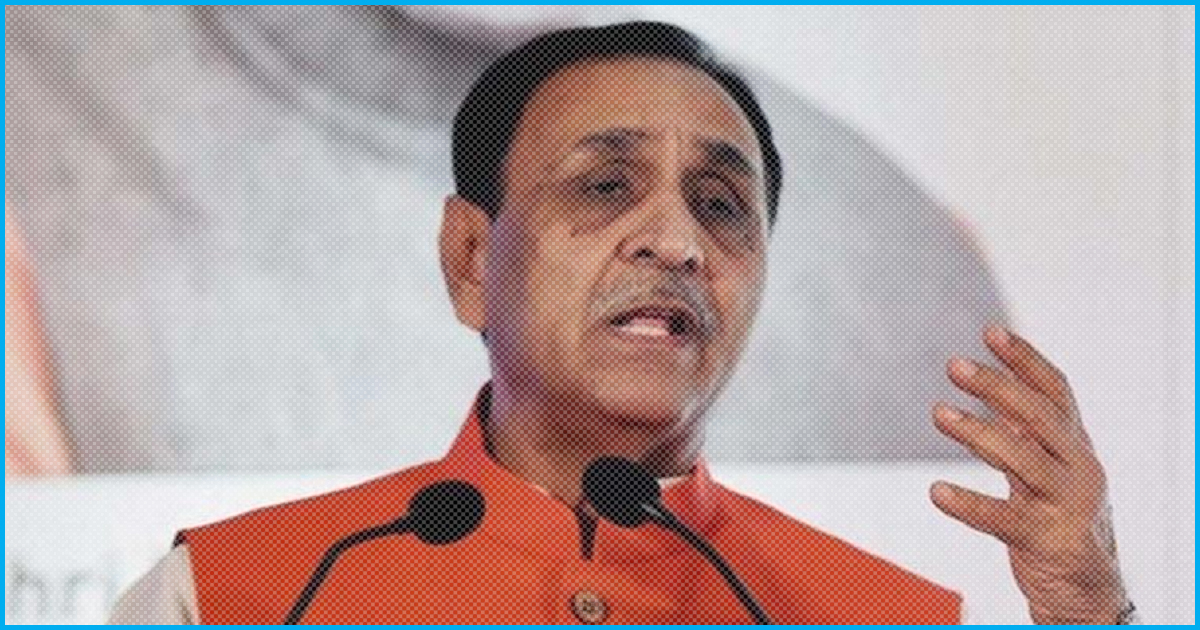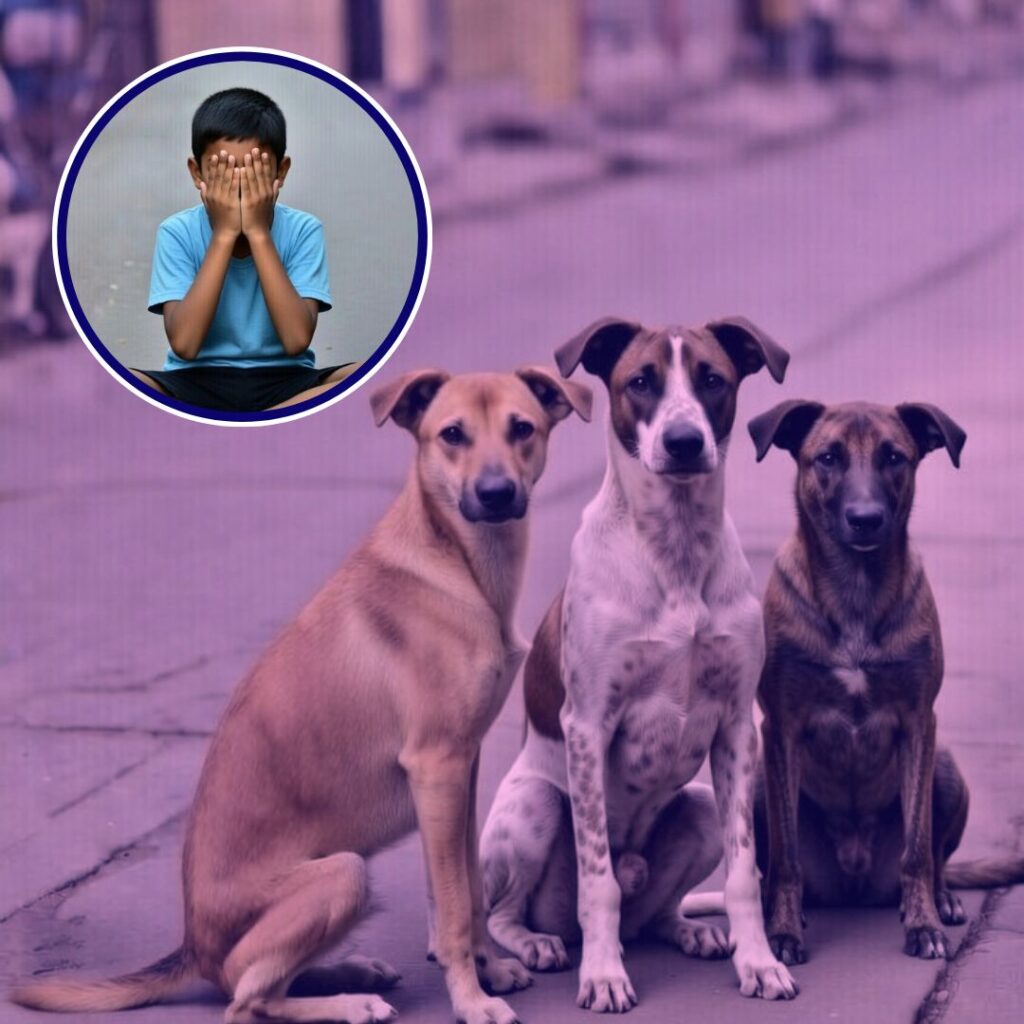Gujarat Chief Minister Vijay Rupani while accusing the Congress of trying to rift apart Hindus and Muslims, said that the BJP-ruled state is where the condition of Muslims is the best compared to any other part of the country. Pointing a finger at the Congress, he said that the “vote bank politics” in the country must be done away with.
What Vijay Rupani said
“For over 50 years, the Congress treated Muslims as a mere vote bank, as a result, Muslims lagged behind in education, employment and in terms of economic development,” he was quoted as saying. Rupani’s statements were recorded as he spoke at the inauguration of the renovated office of state Waqf Board. He made the comment referring to the Sachar Committee report, which had examined India’s Muslim community’s socio-economic and educational status.
Rupani said that the then Congress government forming the Sachar Committee to examine the minorities’ condition was nothing but an example of “appeasement politics.”
“It was the Congress which created a rift between Hindus and Muslims and incited them against each other. Ever since the BJP (once again) came to power, no communal violence has taken place. Such riots took place only during the Congress rule,” Rupani said. He further said that vote-bank politics should necessarily be abolished when India is moving towards ‘surajya’ (good governance), reported News18.
Appreciating the BJP, Rupani said that has adopted the motto of “appeasement to none, justice to all.”
How good really is the condition of Muslims in Gujarat?
A report by The Wire said that in the most important city in Gujarat, which is Ahmedabad, the Muslims and the Hindus stay separately and demonstrate a breach between the two communities. No matter how rich or well-to-do the Muslims are, they are not allowed to be a part of the modern western part of the city. They cannot rent or purchase property under the ‘Disturbed Areas Act’ brought about by the Congress. They live either in a huge Muslim ghetto called Juhapura or across the Sabarmati River in the older part of the city.
This chasm, sociologists say, has increased since the 1990s and nobody makes an effort to bridge the gap so that the two communities can live together in harmony. Dominating the political landscape in Gujarat, the BJP has hardly shown any inclination towards the Muslims.
The division between the two communities in Juhapura is such that local Hindus refer to the place as ‘Little Pakistan’. Conditions for Muslims in Juhapura, as well as other Muslim settlements in the city, are the same: there are no proper roads or streetlights, inadequate drinking water, no sewage pipes, and no access to schools and public clinics, said a report by Reuters.
Gulf between Hindus and Muslims in Gujarat
For more than 10 years since 1995, and then again in 2002, Gujarat has been victim to a series of riots, and these riots have forced Muslims to leave Hindu-dominated areas and vice versa. Hidayat Nagar in Surat, for instance, was a Muslim colony until Gujarat suffered the 1993 riots, following which it turned into a Hindu residential area, retaining its Muslim name, said a report by Firstpost.
200 residential societies on Ajwa road house only Muslims, while in 180 in Sama and Nizampur areas, no Muslims live. This situation is not restricted to these areas but is spread across Gujarat. The Disturbed Areas Act has hardly affected the Hindus because they do not buy property in Muslim areas, but the law has forced Muslims into ghettos and they are unable to buy property in new developments that the Hindus can.
In an incident, Satyagraha Chhavani ground in Gandhinagar saw several Muslims gathered to protest against the state government’s “neglect”. The protest coincided with the United Nations International Minority Rights Day, reported The Indian Express.
During the protest, MCC coordinator Mujahid Nafees said that government’s slogan of ‘Beti Bachao, Beti Padhao’’ did not even apply on the Muslims of Gujarat. From Class I to V, Muslim girls’ drop-out rate in Gujarat was 10.58%, but the government is doing nothing about it. He further said that the BJP government claiming that since 2002, Gujarat has become riots-free is not factual as small-scale riots at local level still take place but do not get any media attention.
Gujarat unit of the All India Muslim Majlis Mushawarat is an umbrella body of Muslims. The president of this body, Shafi Madani, said that both the BJP and the Congress have neglected the Muslims in Gujarat.
In a conversation with The Logical Indian, a worker from a Gujarat NGO, that works towards the benefit of the Muslim communities in the state said, “Our condition is pathetic here. Let alone for our NGO, neither the Congress nor the BJP did anything for the entire Muslim community. Rupani can say anything, but we know what the truth is. All Muslims live in ghettos and are not able to buy property here. Schools have a high dropout rate and there is partiality towards people from other religions everywhere. We are struggling to earn a proper living.”
But despite being victim to economic and political exclusion, some Gujarat Muslims have responded positively. Post the 2002 riots, the Muslims do not put faith in the regime any more, but are establishing educational institutions. The number of Muslim schools rose to around 700, and Muslim NGOs are trying their best to curb dropout rates. Muslims are now reacting to the ill-treatment through education.
Condition of Muslims in other states of India
Throwing light on the condition of Muslims in Gujarat does not change the fact that in a large part of India, in several other states, their condition is no better.
A survey on the condition of Muslims in West Bengal was carried out by Kolkata-based research organizations Association SNAP and Guidance Guild in association with Professor Amartya Sen’s trust Pratichi India. The 368-page report pointed out that in the state ruled by the Trinamool Congress, there has hardly been any improvement in the condition of Muslims in areas like literacy, health or participation in work. In fact, literacy rate of Muslims is seven per cent lower than the average of the state, a report by The Hindu said.
Similarly, in Madhya Pradesh, Muslims who constitute 6% of the entire population hardly has any educational or economic prosperity, and almost no political representation, TwoCircles reported. In Assam under Narendra Modi’s government, Muslims are in constant fear of falsely being targeted for being illegal immigrants from Bangladesh, although some of them really are.
However, Economic Times reported that in Kerala, the economic status of Muslims is good and their literacy rate better than that of the national average, and that the government is seriously concerned about the minorities in the state.
With the country talking about equality for all, the condition of the Gujarat Muslims raises a major question: How much is the government really doing to ensure that everyone is equal? It is high time the government does enough to bridge the gap between Hindus and Muslims and ensure they live with harmony.











